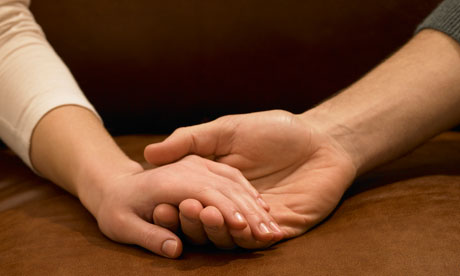
Talking to children about sex is a discussion most parents find difficult. Tricky at the best of times, embarrassing and disastrous at the worst. But when your child has learning disabilities, the subject can be even more of a minefield. Will they understand? Will they be safe? Do they really need to know?
Sex and relationship specialist therapist Gill Leno works with young people with a wide variety of complex learning, physical and sensory disabilities, as well as autistic spectrum disorders. She has been delivering sex and relationships education (SRE) in a variety of settings for some years, and believes that whatever is being done in schools and colleges can only go so far without the support and contribution of parents and carers.
"Good SRE needs to be a combined effort," says Leno. "I know that sex is one of those things we often find hard to talk about, but lots of experience in talking and teaching about sex has led me to the firm belief that the only place anyone can really start the conversation properly is with honesty and the facts."
Leno has recently joined the team of "site experts" at Netbuddy, delivering sex and relationships advice online to parents and carers of people with learning disabilities. Despite the complex issues that sexuality and learning disabilities raise around consent and protection, she firmly believes all young people have a right to good, inclusive, accessible sex and relationships education.
"Learning about sex and relationships equips young people not only with the skills to say yes, but to say no, too," Leno says. "Understanding emotions, boundaries and how to stay safe are vital for people with learning disabilities. A good, well-rounded awareness of sex and relationships is important as it helps to protect against abuse and exploitation as well as providing a solid framework for appropriate behaviour, both sexually and socially."
Leno believes good sex and relationships education (SRE) plays an enormous part in underpinning young people's progress towards independence. "It encourages and supports good social and sexual expression and a sense of self confidence. Educating children and young people from a position of sexual positivity, non-bias and inclusivity means that they will have the same information as their peers in mainstream education and helps to undo some of the damage that misinformation can cause."
Sadly, young people and adults with learning disabilities are much less likely to have access to good SRE because of attitudes towards disability and sexuality, lack of accessible resources and lack of professionals qualified to provide the appropriate support.
People with learning disabilities often get negative messages about sex. "Don't do that, it's not nice!" "Stop touching yourself, that's bad!" There can also be a lot of anxiety around giving the right amount of information or pitching it at an appropriate level. It can be difficult to strike a balance between protecting people with learning disabilities from risks and encouraging them to explore and develop wider personal and social relationships.
"Sex and relationships education can be hit and miss at the best of times," says Leno. "Even in mainstream schools it's fair to say that it can be inconsistent; young people frequently report that it's too little, too late, and too focused on the biological end of things. The most important thing is to support all conversations about sex and relationships with the three Cs – compassion, clarity, consistency. Start with the facts and be honest. Don't be afraid to approach others for help. Many of us did not receive good sex education at school ourselves, and it can make things feel much more difficult than it needs to be."
Emma Sterland is the website community manager of Netbuddy. You can talk to Gill Leno about all aspects of sex and relationship education for people with learning disabilities on the Netbuddy Forum. Netbuddy has also put together a Sex and Relationships info pack for parents, carers and learning disability professionals.
Why not join our social care community? Becoming a member of the Guardian Social Care Network means you get sent weekly email updates on policy and best practice in the sector, as well as exclusive offers. You can sign up for free here.

